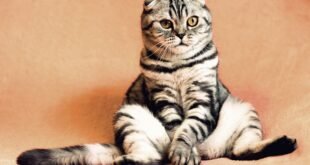The Vikings certainly loved cats. In Norway and Iceland cats were in high demand. Unfortunately for the cats, the people of Norway saw no value in a living cat; it was the fur they absolutely adored. Even the fox could not compete with the cat. The Norwegian king Magnus VI, the law-mender (1238 – 1280) passed a law declaring cat fur as legal currency. One piece of cat fur was equivalent to three pieces of fox fur.
Cat fur was quite valuable. Only the rich could afford this luxury. Now as it happens, the Volvas were among the upper classes. A Volva was a woman who was a master of prophecy and witchcraft. The Volvas were greatly respected and feared. Their services were in high demand, but extremely expensive.
In the Saga of Eric the Red, a Volva is described in great detail. She had been summoned to help the settles of Greenland during their hardship. She was called Lisevolve and she was treated like a queen. The clothes she wore are described down to the last detail in the saga. On her head she wore a hat trimmed with cat skin. Her gloves were made of cat skin which had fluffy white cat fur on the inside.
Now as it happens, the goddess of love was also a master of magic and witchcraft. Her name was Freyja. No other god or goddess mastered witchcraft better than Freyja. She was the most beautiful goddess of the Viking world. The goddess of love and magic had a stunning carriage. Yes, you guessed it. The carriage was pulled by two cats.
Volvas of the human world, loved to dress up with clothes made from cat skin and cat fur. Freyja, the goddess of love and magic was associated with two cats. It seems the tendency to associate cats with witchcraft was well established in the Viking Age. Cats certainly have been unfairly prosecuted throughout the centuries in the Western World. Fortunately major parts of the human race have come to their senses and are finally treating cats with the respect and love they deserve.
